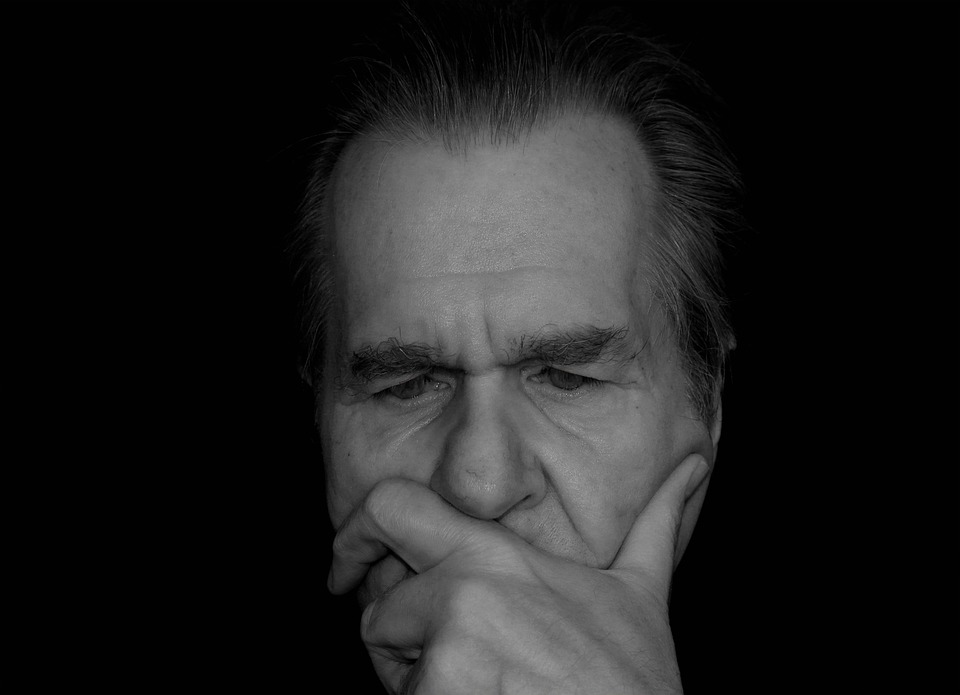What do you really care about? I asked myself that question recently, and I was surprised by the results.
Firstly, it seems that I care about quite a lot of things. And secondly, although I care about these things, they’re generally not the things that I spend most of my time talking about, writing about, reading about, and taking action on.

So it was a useful exercise. I’d recommend it to anyone, writer or non-writer. Just ask yourself what you really care about, and list what comes to mind, as quickly and roughly as possible, without over-thinking it. Trust your gut.
Here’s my list:
- the treatment of refugees
- the demonisation of immigrants
- injustice
- capitalism
- climate change
- the meaning of life
- inequality
- the hypocrisy of privilege
- the loss of traditional values
- the breakdown of society
- the infantilisation of people
- the shallowness of pop culture
- the emptiness of materialism
- the rightward lurch of Britain and Europe and the US
- intolerance
- racism
- the inherent stupidity of divisions based on religion/nation, etc.
- our basic connection
- the illusion that we know things when we don’t
- the way we make decisions based on gut feeling and then use reason to justify them
- our fundamental irrationality
- the dishonesty of tourism
- the commodification of culture
- what happens when you step off the prescribed path
- the clash of desire for freedom vs constraints of social rules
- the possibility of radical change
- the contradictory desire to make things permanent in a world of constant change
- the power of corporations and the rich, the way they own our democracy
- the hollowing out of democracy
- the gutting of any opposition to neoliberalism after the end of the Cold War
- the reduction of elections to choices based on personality not issues
- the conflict people feel when placed in impossible positions, the way they rationalize it
- the way corporations and other big organizations spread the responsibility and dilute the guilt so that they can act in horrific ways that no individual would dare
- the state as a source of violence and corruption rather than a moderator of it as most believe
- what would happen in an apocalypse, the essential way that people come together because they can’t survive as individuals, the way this would happen post-apocalypse rather than people roaming around eating each other
- the formation of human societies and how it’s flawed and often violent and exclusionary but still based fundamentally on cooperation and mutual aid for mutual survival
- the way the internet is frying our brains, encouraging slogan-based thinking and making us incapable of sustained logical thought processes
- the erosion of nuance
- the attack on free education and even the concept of education as something valuable in itself and not just as training for a job
- the failure of left-wing alternatives but their continued appeal
- the pursuit of utopian solutions or even the creation of utopian mini-societies within a capitalist super-structure
- the clash of ideals vs practical reality
- the impracticality of practical solutions
- the pursuit of infinite growth in a finite world
- the appeal of simplicity and yet our urge to complicate things
- the limitations of large-scale solutions
- the anomie that results from living in large cities/corporations/governments/NGOs etc
- the way individuals get made small and feel insignificant and surrender their power
- our enduring failure to understand that we can do anything, that most of what constrains us is completely made up and can be changed
Quite long, huh? You may see me writing about these things in future—here on the blog, in articles elsewhere, and in my books and short stories. You may also see me writing about other stuff I don’t care so much about (see that item above about “the clash of ideals vs practical reality”). But I’d like to spend more time on the important stuff.
What Do You Care About?
What do you care about? Leave a comment below, or write your own post and link to it. Or, if you prefer to communicate the complexity of life in 140 characters or less, tweet at me.



There are 17 comments
Your list may well be mine also, however, to be more succinct my worst concerns are:
Donald Trump and how quickly will he screw the country, sell us to Russia at a bargain price, and crush the poor completely in the USA?
Immigrants and immigrants’ rights.
Social Security and Medicare changes.
Obamacare destruction.
Really drastic climate change, e.g., even greater warming.
The obscenely rich taking over absolutely.
Hi Suzanna, Thanks for sharing your list! Yes, I think we do have similar concerns. I don’t live in the USA any more, so the specifics are different, but much of this stuff affects us all, unfortunately.
Hi Suzanna. Seems you are very concerned with Mr. Trump and his policies, which is totally natural if your are an American. However the part about selling “us” to Russia means you totally presume Russia is concerned with bying whatever you mean (US as a country? The American population?). Funny how people may get to be afraid of shadows.
When asked what I care about, the first thing that pops into my mind is my family. Is it too cliche?
We share most points but the things I care most is women rights i guess.
Whether Neil Gaiman would continue write books or not…
Whether it is even safe ton bring children into this world.
The list goes on in a depressing way.
Hi Sinem
Not a cliche at all! Family is a great answer. For myself, I started making this list because I was thinking about directions I wanted to take my writing in, so my mind went more towards issues in the world. But family is definitely something I care about. Your others sound good too. It can indeed be depressing to make a list like this, which often includes problems, but I also found it quite interesting, and a good pointer for spending more of my time in the year to come on things I care about rather than things I don’t. Thanks for your comment!
What an interesting and excellent idea. Certainly something to put life in perspective, really really thinking about what you care about and what you just think you care about.
Yeah, I find it’s easy to get drawn into spending time on what you think you care about, or what you think you should care about, or what you used to care about, or what you don’t care about at all but have got into the habit of doing…
Excellent list! I add:
The commodification of everything
The food and agriculture system and how it has been wrecked and the environment destroyed by big business
The horrific treatment of animals especially those raised for food
The way the oceans are treated as great garbage dumps
The increase in drinking water insecurity and how water is moving toward being treated as a privilege rather than a basic human right
Affordable health care for everyone including medications
Creating not only the infrastructure but a safe infrastructure for cyclists and other alternative forms of transportation like walking — too many people are killed by cars and too many people can’t go anywhere unless they own a car.
Wow, Stefanie, fabulous additions! I am on board with you on all of those. And it’s interesting how some of them (on both your list and mine) are connected and reinforce each other, e.g. the commodification of everything extends to water—why offer safe public drinking water when you can put it in plastic bottles and make profits from selling it? And that contributes to the masses of plastic in the ocean, etc.
Definitely the cycling thing resonates with me too. I wanted to do it when I lived in London, but cyclists seemed to be dying every day there. But while travelling, I’ve seen places where they have put in a safe infrastructure (e.g. Copenhagen) and it works beautifully. People can have healthier lifestyles, the city is more liveable, less noisy and less polluted, etc. It was a great example of what’s possible when the wellbeing of ordinary people is treated as a serious factor in political decision-making.
Agree! So many things are connected and changing one thing can make positive differences in other things too like you point out regarding bottled water. I’m an avid cyclist and I live a cycling positive city in the US but there still needs to be a lot of work done because too many cyclists get hit by cars and most of the time it isn’t our fault. I’ve been lucky so far though there have been some close calls. Copenhagen is my dream city. I want to go there just to see what the cycling is like 🙂
Ah, good to hear you live in a cycling positive city, Stefanie. Minneapolis, isn’t it? It seems to me that there should be space for cyclists in US cities because they tend to have more modern, spacious layouts with wider roads. London is a 21st-century city on a medieval road layout, and all that traffic on roads designed for horses and carts is a recipe for disaster. Copenhagen is an old city too, of course, but they’ve closed a lot of roads to cars altogether, and where cars are allowed, they only have part of the road, with a big section devoted to cyclists and pedestrians. And the cycling part is usually separated clearly from the cars with a kerb or barrier, so that collisions are unlikely. It really is very well thought out. Many Dutch cities use similar methods, of course. So good for quality of life, health, the environment, and generating a sense of community and street life in the city.
Yes, Minneapolis 🙂 Copenhagen has a big role in the movie Bikes vs Cars (excellent film!) and it looks like cycling heaven. As good as Minneapolis is, we are not even close to the wonder that is Copenhagen.
Ah, I haven’t seen that film. It sounds really interesting. Will check it out!
Andrew,
What a great list! I see in the comments that you are exploring some of these subjects to write posts about. I also like that you chose the positive word “care” rather than “worry.” I would definitely be interested in reading what you have to say on a lot of these topics.
I agree with Sinem’s addition of family, because if we care about our families and can see others as an extended family, maybe we avoid a lot of the mess the world is in these days.
Simply put, I care about the future.
Thanks for the thoughtful comment, Petra! I do agree that many of the problems in the world come from exclusionary ways of thinking. I grew up at a time when walls were coming down, and now they’re going back up again. There’s so much fear-mongering about the Other, when really our only hope is to see everyone as an extended family. We’re all in the same boat, after all, and we’ll sink or swim together. Right now, it seems as if we’re not very seaworthy, but, like you, I care about the future, and I do see hope in various places.
My main concern is about the decline in democracy in the west, as a result of the increasing lack of respect that we have for our so-called leaders. There are obvious cases such as the expenses scandal in the UK some years ago which clearly show that these people are venal and simply no better (and often much worse) than the general public. And of course there is the American election and the very poor quality of both main parties’ candidates (yes, I include Hilary in that statement), the use of fake news, and the ridiculous level of non-debate about policies. And in Australia, where 70% of the people favour marriage equality, our so-called representatives are simply refusing to represent us because they have personal religious objections.
However my best example of what is wrong with democracy is what the current darling of the left, and probably the only remaining popular politician in the entire world, is doing. I am referring of course to Canada’s Justin Trudeau. Because of Canada’s first past the post voting system (the same as the UK but not the same as Australia, New Zealand, Germany, and others), Stephen Harper managed to rule with a majority in parliament for nine years while 60% of the people voted against him. Trudeau made many promises in his campaign in 2015 but the firmest and clearest was that it would be the last one to be conducted under first past the post – that he would reform the system.
Trudeau won the election with about 41% of the vote – yes, again almost 60% of the people voted for some other party. He has now been in power for over 19 months, and his latest thoughts on the electoral system are (I paraphrase): “Well maybe it is not such a bad system after all, since it has voted my party into power. And so I think people don’t really care that much about it anymore.” Clearly his supporters don’t care now that it has delivered power to them with a minority of the vote. And they probably won’t care until the system again delivers power to his opponents, when again it will suddenly become the most important issue in the country.
Is it any wonder that people are sick of politicians, even the supposed best of them? This is like buying a toaster because it says on the box that it will make toast. You pay for it and take it home and unwrap it only to find a disclaimer that says it really is not going to make any toast. It will do a lot of other things, some that are mentioned on the box and some that are not. But the makers have decided in their wisdom that you really didn’t need toast in the first place. And, sorry, there is a five year wait before you can return it and buy another toaster. A lot of people are beginning to wonder why you would bother to buy another toaster when the new one will almost certainly also not do what it says it will on the box.
Hi Henry
Thanks so much for the comment. I completely agree about the decline in democracy—it’s a huge problem. And I like that you used the example of Justin Trudeau. I haven’t followed Canadian politics in any detail, so all I have is what is probably the average international view of Trudeau as someone who sounds a lot more intelligent and more compassionate than Trump, Theresa May and the rest of them. It’s very disappointing to hear that he made false promises.
“First past the post” is a ridiculous, outdated system. It creates a situation in which most people’s votes count for nothing because their state/constituency is “safe” for a particular party, and the whole election is reduced to fighting over a few key “battleground” constituencies. Reforming it should be a no-brainer these days, now that we have the technology to have much more sophisticated systems. But it comes down to vested interests, and it’s so sad to hear that even Trudeau, who seems so much better than the rest, didn’t follow through. Thanks so much for letting me know about this.